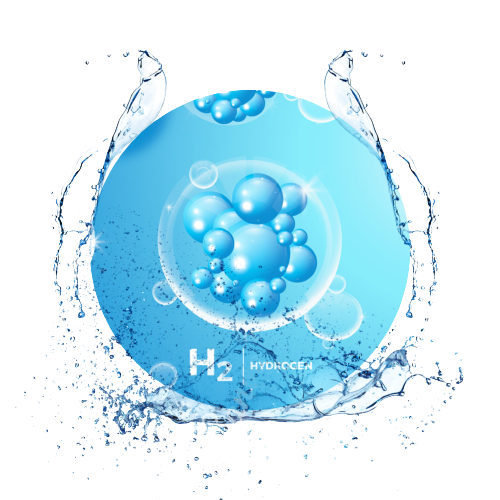

While it's still in the early stages of research, more than 2,000 scientific studies, including over 100 clinical trials, indicate that hydrogen gas (H2) might have the potential to be used as a treatment in more than 170 different diseases in both humans and animals. These studies have shown that H2 could potentially be helpful in nearly every part of the human body.
This is Hydrogen era
While it's still in the early stages of research, more than 2,000 scientific studies, including over 100 clinical trials, indicate that hydrogen gas (H2) might have the potential to be used as a treatment in more than 170 different diseases in both humans and animals. These studies have shown that H2 could potentially be helpful in nearly every part of the human body.
What is Molecular hydrogen ?
Molecular hydrogen is a simple substance made up of two hydrogen atoms connected together, which creates hydrogen gas. Its chemical structure is H-H, and its formula is "H2." In nature, hydrogen atoms are usually combined with other elements, like oxygen to create water (H2O) or with carbon to make methane (CH4). However, when we talk about the potential health benefits, we're focusing on the H2 molecule, or hydrogen gas, itself.
How can we use molecular hydrogen?
You can use molecular hydrogen in a few ways: Breathing: You can breathe in hydrogen gas. Drinking: You can drink water that has hydrogen gas dissolved in it. Bathing: You may take baths in hydrogen water. Or you may use intravenous hydrogen saline.
What is the role of hydrogen in pH scale ?
Hydrogen ions (H+) determine whether a solution is acidic or alkaline (pH level). When water breaks apart, it forms these hydrogen ions and hydroxide ions (OH–), which influence the pH of the water. The more H+,the more acidic; the less H+, the more alkaline. However H2 is aneutralmolecule.
What is Hydrogen water ?
Hydrogen water, also known as hydrogen-rich water, is just regular water (H2O) with dissolved hydrogen gas (H2) in it. It's like how soda has carbon dioxide gas (CO2) dissolved in it or how some beverages have oxygen gas (O2). You can think of it as taking a tank of hydrogen gas, like the ones used for filling balloons or in hospitals, and bubbling it into a glass of water. There are various methods to make hydrogen water, but the idea is straightforward – it's water with hydrogen gas dissolved in it.
How much hydrogen water should I drink?
Scientists are still trying to figure this out. But in animal and human studies, they've typically used daily doses of about 0.5 to 1.6 milligrams (mg) or even more of H2, and they've seen positive results. So, if your water contains 1 milligram per liter (equivalent to 1 part per million or ppm), drinking two liters of this water will give you 2 mg of H2. It's important to note that the effective amount of H2 may vary for different people and conditions, but these doses are what have shown benefits in research.
Is there anything to know about Chemistry of Hydrogen ?
Hydrogen is the lightest and simplest element, with the symbol H. It consists of just one electron and one proton. In its usual state, it's found as molecular hydrogen (H2 gas), where two hydrogen atoms are stuck together. This hydrogen gas is vital for various things, like powering the sun through nuclear fusion. There are a few different forms of hydrogen:Atomic Hydrogen: This is a single hydrogen atom with one unpaired electron. It's very reactive but rare. When you make atomic hydrogen, it quickly combines with another hydrogen atom to form stable molecular hydrogen (H2). Molecular Hydrogen: This is the most common form of hydrogen, where two hydrogen atoms are joined together to make H2 gas. This is the kind of hydrogen that has been studied for its potential therapeutic effects. Hydride: This is a hydrogen atom with an extra electron, making it a negative ion (H–). It's not a free radical and is a strong base. It reacts with water to produce molecular hydrogen. Positively-Charged Hydrogen Cation (H+): This is essentially a proton, which is a hydrogen atom without its electron. Protons play a crucial role in various biological processes, like generating energy in our cells.
Is This Hydrogen water safe / is not it explosive ?
Hydrogen gas has been proven to be very safe, even at concentrations much higher than those used for therapy. For instance: Back in the late 1800s, hydrogen gas was used to find gunshot wounds in the intestines, and it never caused any toxic effects or irritation, even in sensitive tissues. Deep-sea divers have been using hydrogen gas since 1943, and they use very high concentrations to prevent decompression sickness. Studies have shown no harmful effects from hydrogen, even at very high levels and pressures (with 98.87% H2 and 1.26% O2 at 19.1 atm). Our bodies naturally produce hydrogen gas when our gut bacteria break down fiber-rich foods. So, hydrogen is something natural for our bodies, not some foreign or synthetic substance that can only be created in a chemistry lab. It's like a part of our biological system. It is true that Hydrogen is incredibly powerful and can explode, but when it's dissolved in water, it's safe. It's like how mixing gunpowder with water doesn't make it explosive. Even in the air, hydrogen is only flammable when it makes up more than 4.6% of the air, which isn't a worry with hydrogen-rich water.




